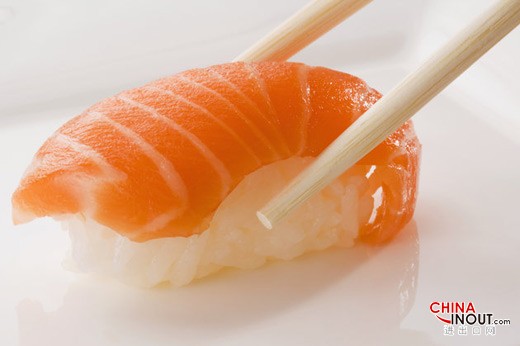美國食品藥品管理局周四批準了轉(zhuǎn)基因三文魚被人類食用。批準轉(zhuǎn)基因動物食用在美國尚屬首次。
奧巴馬政府五年多以來一直未能批準快速增長的轉(zhuǎn)基因三文魚上市,,因為消費者一直擔心食用轉(zhuǎn)基因食品是否安全,。但本周四,,食品藥品監(jiān)督管理局已經(jīng)明確了,,轉(zhuǎn)基因三文魚可以安全食用。
食品藥品管理局表示,,AquAdvantage三文魚(美國AquaBounty技術(shù)公司的研究人員將大西洋三文魚,、太平洋奇努克三文魚以及大洋鱈魚三種魚進行基因雜交改造,培育出來的一種全新三文魚品種)與其他農(nóng)場養(yǎng)殖的大西洋三文魚的營養(yǎng)含量沒什么生物區(qū)別,。
馬薩諸塞州公司AquaBounty培育了AquAdvantage這一三文魚品種,。該公司CEO羅恩·斯拖提希在一次聲明中表示,該品種三文魚是一個革命者,,它將給消費者帶來健康營養(yǎng)的食物,,并且承擔起環(huán)境責任,不損害海洋及海洋生物,。
這種魚的生長速度是普通三文魚的兩倍,,能更快速地上市。它體內(nèi)含有從太平洋奇努克三文魚身上提取的激素,,可以使之一整年不斷產(chǎn)生生長激素,。工程師用另一種類似鰻魚的大洋鱈魚基因保持生長激素的活躍,促進AquAdvantage三文魚生長,。普通三文魚一年內(nèi)只有部分時間產(chǎn)生生長激素,。
食品藥品管理局表示該魚種損害環(huán)境的可能性很低。只養(yǎng)殖了雌魚和絕育魚,,僅有一小部分仍能繁殖,。該公司稱流入自然的可能性很低。
沒有證據(jù)證明這種魚不安全,,但部分人認為這是個道德問題,。
部分經(jīng)銷商承諾不銷售這個品種,且批準后這種魚是否為大眾所接受還不得而知,?;蚬こ桃呀?jīng)在農(nóng)作物上大規(guī)模應(yīng)用,但政府直到現(xiàn)在才考慮允許轉(zhuǎn)基因動物的消費,。雖然利益和利潤極大,,許多人對于操縱改變其他生物遺傳密碼的行為感到不安,。
批評者將這種轉(zhuǎn)基因三文魚稱為“科學(xué)怪魚”(美國一部恐怖電影名)他們擔心造成人類過敏,且一旦流入自然后繁殖,,造成天然三文魚的滅絕。還有人認為繁殖轉(zhuǎn)基因動物是不道德的,。(中國進出口網(wǎng))
The Food and Drug Administration on Thursday approved genetically modified salmon, the first such altered animal allowed for human consumption in the United States.
The Obama administration had stalled in approving the fast-growing salmon for more than five years amid consumer concerns about eating genetically modified foods. But the agency said Thursday the fish is safe to eat.

In announcing the approval, the FDA said that there are "no biologically relevant differences in the nutritional profile of AquAdvantage Salmon compared to that of other farm-raised Atlantic salmon."
AquAdvantage Salmon was created by the Massachusetts-based company AquaBounty. Ron Stotish, the company's CEO, said in a statement that the fish is a "game changer that brings healthy and nutritious food to consumers in an environmentally responsible manner without damaging the ocean and other marine habitats."
The fish grows twice as fast as normal salmon, so it reaches market size more quickly. It has an added growth hormone from the Pacific Chinook salmon that allows the fish to produce growth hormone all year long. The engineers were able to keep the hormone active by using another gene from an eel-like fish called an ocean pout that acts like an "on" switch for the hormone. Typical Atlantic salmon produce the growth hormone for only part of the year.
The FDA has also said the fish is unlikely to harm the environment. The fish would be bred female and sterile, though a very small percentage might still be able to breed. The company has argued the potential for escape is low.
There is no evidence that the foods would be unsafe, but for some people, it's an ethical issue.
Some retailers have pledged not to sell the salmon, and it's still unclear whether the public will have an appetite for the fish if it is approved. Genetic engineering is already widely used for crops, but the government until now has not considered allowing the consumption of modified animals. Although the potential benefits and profits are huge, many people have qualms about manipulating the genetic code of other living creatures.
Critics call the modified salmon a "frankenfish." They worry that it could cause human allergies and the eventual decimation of the natural salmon population if it escapes and breeds in the wild. Others believe breeding engineered animals is an ethical issue.











